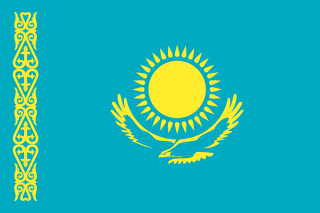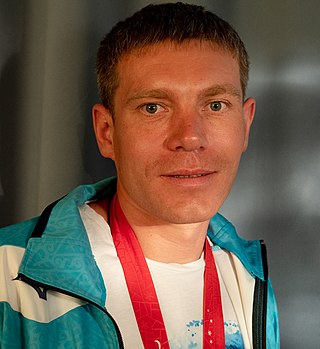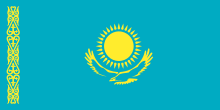
The 2006 Winter Paralympic Games, the ninth Paralympic Winter Games, took place in Turin, Italy from 10 to 19 March 2006. These were the first Winter Paralympic Games to be held in Italy. They were also the first Paralympics to use the new Paralympics logo.

Biathlon at the 1998 Winter Olympics consisted of six biathlon events. They were held at Nozawa Onsen. The events began on 9 February and ended on 21 February 1998.
Alpine Skiing at the 1998 Winter Olympics consisted of ten alpine skiing events. The speed events were held at Hakuba and the technical events at Shiga Kogen. There were a number of race postponements due to weather; the events began on 10 February and ended on 21 February.
Alpine skiing at the 1994 Winter Olympics consisted of ten alpine skiing events, held north of the host city of Lillehammer, Norway. The speed events were held at Kvitfjell and the technical events at Hafjell from 13 to 21 February.

South Africa made its Winter Paralympic Games début at the 1998 Winter Paralympics in Nagano, Japan. The country entered only one athlete, Bruce Warner, who competed in alpine skiing. He did not win any medals.

Kazakhstan first competed at the Asian Games in 1994.

The United Arab Emirates started actively participating in the Paralympic community during the 1990s. They made their debut at the 1992 Summer Paralympics. Since that time, they have won several Paralympic medals. The country had their debut on the international Paralympic stage at the 1990 Stoke Mandeville Games. Some of the country's Paralympic competitors are internationally ranked. The United Arab Emirates have competed at several other Paralympic events including the Arab Paralympic Games, Asian Paralympic Games, IWAS World Games, Stoke Mandeville Games, and World Semi-Olympic Championship. The United Arab Emirates Paralympic Committee is the national organisation, gaining its International Paralympic Committee recognition in 1995 and have subsequently made winning medals and hosting events a priority.

Kazakhstan, having become independent in 1991, made its Paralympic Games début at the 1994 Winter Paralympics in Lillehammer, with merely two athletes competing in cross-country skiing and biathlon. The country has competed in every edition of the Summer and Winter Paralympics since then. Kazakhstan has obtained only one Paralympic medal: a silver in cross-country skiing, won by Lubov Vorobieva during the country's inaugural participation in the Games in 1994. Along with Liechtenstein, Kazakhstan was the only participating country to have won a medal only at the Winter Paralympic Games, until end to 2016.

Armenia made its Paralympic Games début at the 1996 Summer Paralympics in Atlanta, with just two entries: Gagik Gasparian in powerlifting, and a four-person team in the mixed crewboat event in sailing. Two years later, Armenia made its Winter Paralympics début, with eight competitors in alpine skiing. The country has participated in every subsequent event of both the Summer and Winter Paralympics, although its delegations have generally been small.

Norway has participated in every edition of both the Summer and Winter Paralympics, except the second Summer Games in 1964. It was one of the seventeen countries to take part in the inaugural Paralympic Games in 1960 in Rome, where it sent a delegation of eleven athletes. Norway was the host country of both the 1980 Winter Paralympics, in Geilo, and the 1994 Winter Paralympics, in Lillehammer.

The 2022 Winter Paralympics, commonly known as Beijing 2022, were an international winter multi-sport parasports event held in Beijing, China from 4 to 13 March 2022. This was the 13th Winter Paralympic Games, as administered by the International Paralympic Committee (IPC).

Kazakhstan competed at the 2014 Winter Olympics in Sochi, Russia, from 7 to 23 February 2014. Kazakhstan's team consisted of 52 athletes competing in 11 sports, an increase of 14 athletes from four years prior.

Kazakhstan competed at the 2002 Winter Paralympics in Salt Lake City, United States. One competitor, Zeinolla Seitov, from Kazakhstan competed in three events in cross-country skiing. He won no medals and so did not place in the medal table.

Kazakhstan competed at the 1994 Winter Paralympics in Lillehammer, Norway. Two competitors from Kazakhstan competed in two biathlon events and six cross-country skiing events. In total Kazakhstan won a single silver medal and finished 20th in the medal table.

Kazakhstan first competed at the Deaflympics for the first time in 1997. Kazakhstan claimed their first Deaflympic medal in their first Deaflympic experience and finished with 2 medals in the event. So far, Kazakhstan has managed to bag 8 medals in the event's history.
Alexey Bychenok is a Russian male cross-country skier and biathlete who is also engaged with the Paralympic athletics. He represented Russia at the 2014 Winter Paralympics and competed in the biathlon events. Alexey claimed his first Paralympic medal for Russia after claiming a silver medal in the men's middle sitting event during the 2014 Winter Paralympics.

Kazakhstan sent competitors to the 2018 Winter Paralympics in Pyeongchang, South Korea. Six people and one guide skier from Kazakhstan will be going to Pyeongchang, South Korea for the 2018 Winter Paralympics. All are competing in para-Nordic skiing. There are six men and one woman. Three are going to their first Paralympic Games. They are coached by Vasily Kolomyjets. The team spent two years preparing for the Winter Paralympics.

Kazakhstan competed at the 2020 Summer Paralympics in Tokyo, Japan, from 24 August to 5 September 2021.

Alexandr Gerlits is a Kazakhstani cross-country skier and biathlete who competed at the 2018 and 2022 Winter Paralympics.

The Winter Paralympic Games "We Are Together. Sports" was an international multi-sport tournament organized by the Russian Paralympic Committee. It was held from 18 to 21 March 2022 in Khanty-Mansiysk, Russia.











